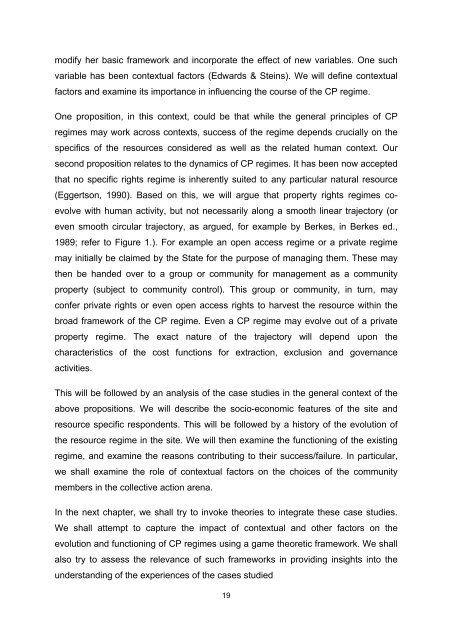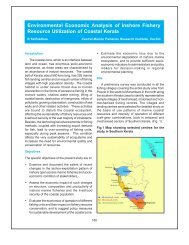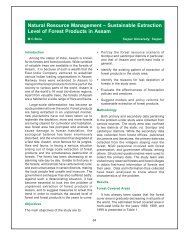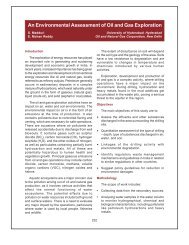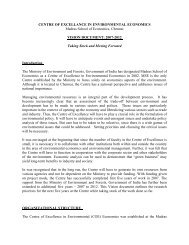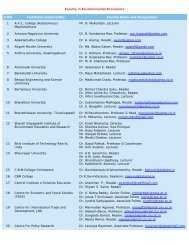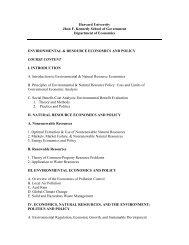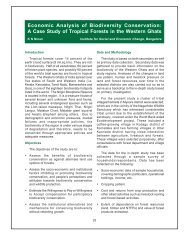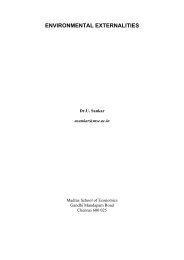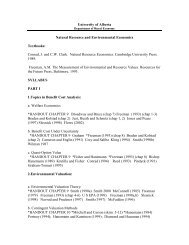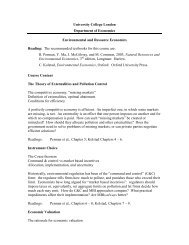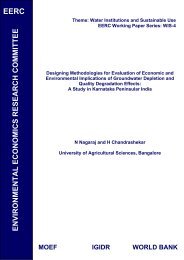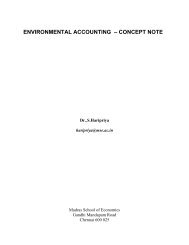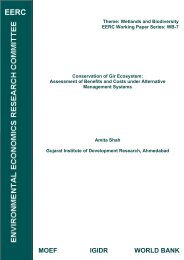PDF 3.08 MB
PDF 3.08 MB
PDF 3.08 MB
Create successful ePaper yourself
Turn your PDF publications into a flip-book with our unique Google optimized e-Paper software.
modify her basic framework and incorporate the effect of new variables. One such<br />
variable has been contextual factors (Edwards & Steins). We will define contextual<br />
factors and examine its importance in influencing the course of the CP regime.<br />
One proposition, in this context, could be that while the general principles of CP<br />
regimes may work across contexts, success of the regime depends crucially on the<br />
specifics of the resources considered as well as the related human context. Our<br />
second proposition relates to the dynamics of CP regimes. It has been now accepted<br />
that no specific rights regime is inherently suited to any particular natural resource<br />
(Eggertson, 1990). Based on this, we will argue that property rights regimes co-<br />
evolve with human activity, but not necessarily along a smooth linear trajectory (or<br />
even smooth circular trajectory, as argued, for example by Berkes, in Berkes ed.,<br />
1989; refer to Figure 1.). For example an open access regime or a private regime<br />
may initially be claimed by the State for the purpose of managing them. These may<br />
then be handed over to a group or community for management as a community<br />
property (subject to community control). This group or community, in turn, may<br />
confer private rights or even open access rights to harvest the resource within the<br />
broad framework of the CP regime. Even a CP regime may evolve out of a private<br />
property regime. The exact nature of the trajectory will depend upon the<br />
characteristics of the cost functions for extraction, exclusion and governance<br />
activities.<br />
This will be followed by an analysis of the case studies in the general context of the<br />
above propositions. We will describe the socio-economic features of the site and<br />
resource specific respondents. This will be followed by a history of the evolution of<br />
the resource regime in the site. We will then examine the functioning of the existing<br />
regime, and examine the reasons contributing to their success/failure. In particular,<br />
we shall examine the role of contextual factors on the choices of the community<br />
members in the collective action arena.<br />
In the next chapter, we shall try to invoke theories to integrate these case studies.<br />
We shall attempt to capture the impact of contextual and other factors on the<br />
evolution and functioning of CP regimes using a game theoretic framework. We shall<br />
also try to assess the relevance of such frameworks in providing insights into the<br />
understanding of the experiences of the cases studied<br />
19


